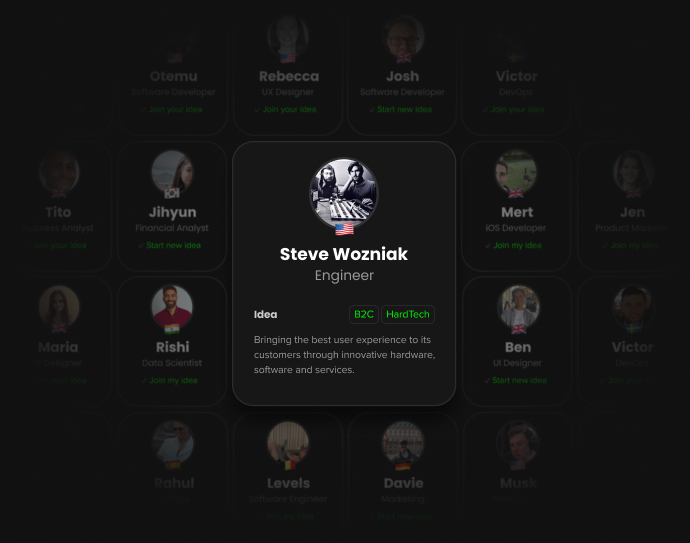Ryan Connaughton is the founder of Tertle, a digital platform where people in search of potential co-founders can connect with each other. In this article, we'll learn more about the company, his story, and how he started the business from scratch.
Can you briefly explain what Tertle is and the issue it aims to address?
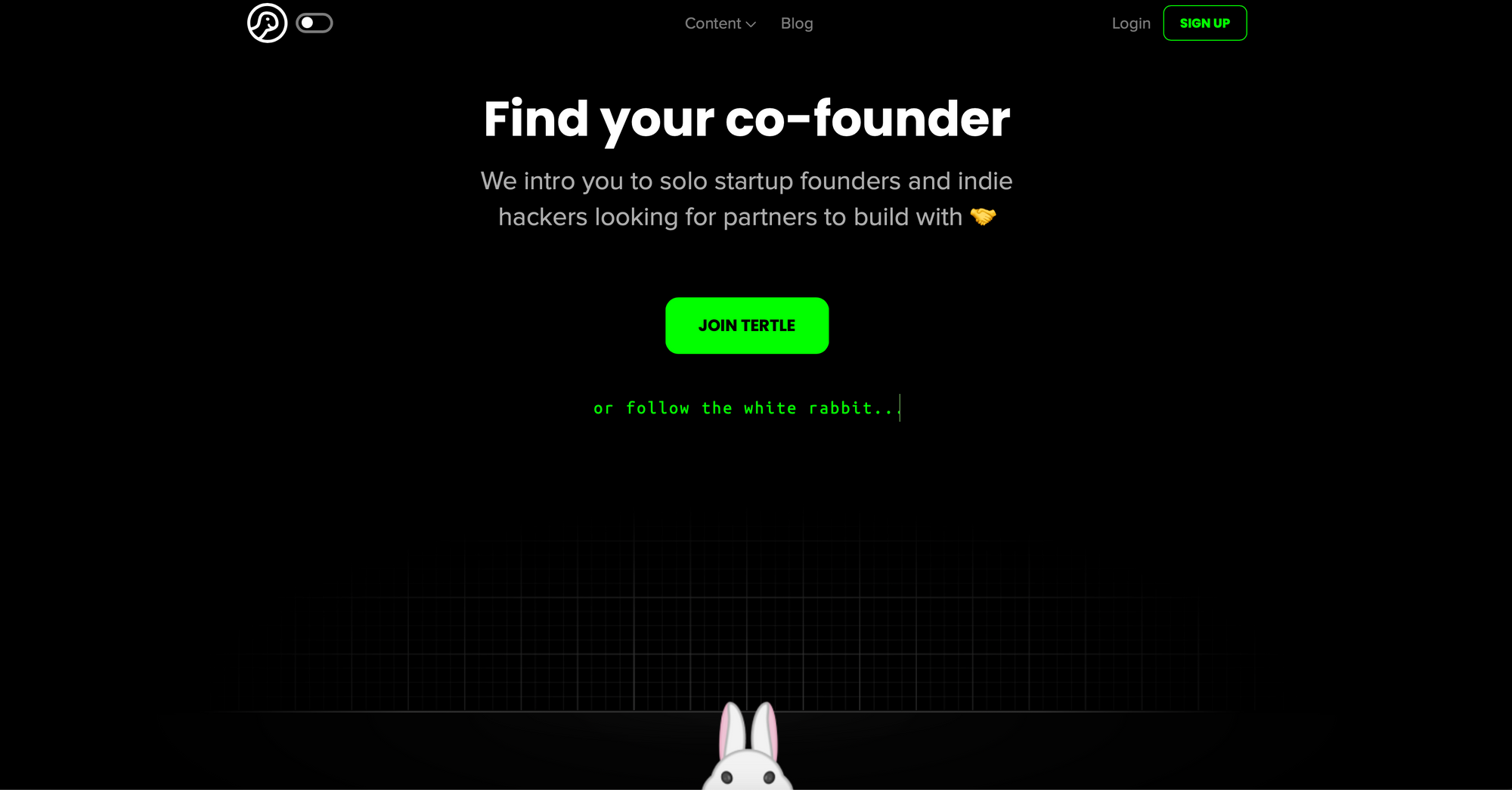
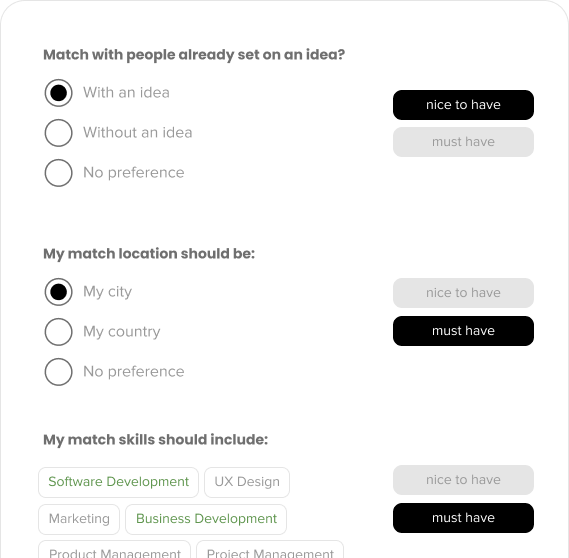
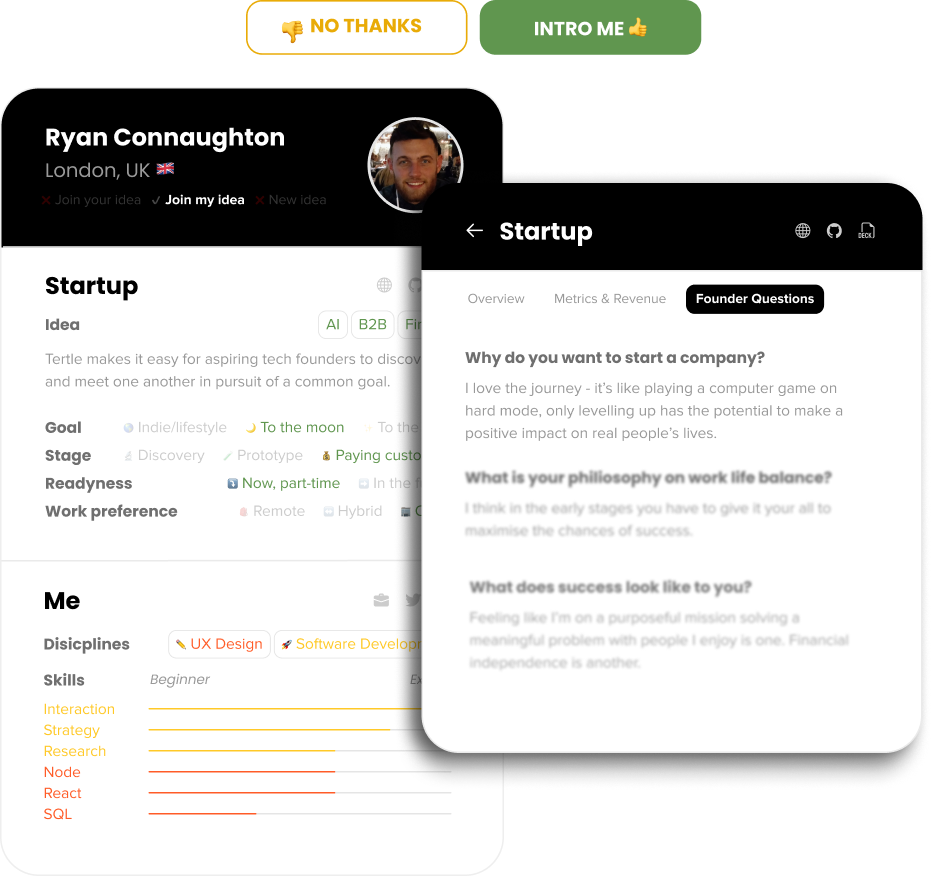
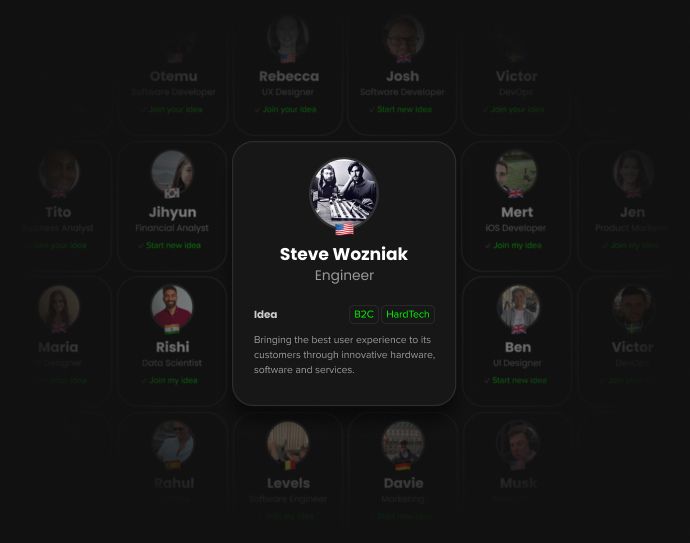
Many individuals may have difficulty finding suitable co-founders due to a lack of connections or other constraints, such as full-time employment. To facilitate easy connections through a user-friendly experience, I created Tertle. Although my initial focus is on co-founder matching, I envision Tertle expanding to accommodate various other networking needs within the technology industry.
What is your background, and how did you develop the idea for Tertle?
My background began with web development and design over a decade ago. I spent five years in UI and visual design, followed by another five years in user experience, user research, and product management. The concept for Tertle emerged a couple of years ago as I delved deeper into programming.
Initially, I needed a technical co-founder for a project, but things didn't work out after committing to an idea and partnering with one. Back at square one, I decided to learn to program to make progress; having a technical co-founder would become a nice idea compared to having none. The vehicle to do that was Tertle, so I was tackling it from two sides. Now, my focus is on helping others in a similar situation, both technical and non-technical.
Tertle is currently in beta, nearing its first full version release. The development process has involved alternating between full-time and part-time work as a UX (User Experience) contract consultant, which has been ongoing for the past two years. Since then, my main competitor, YC (YCombinator), came up with a similar idea after I announced Tertle.
Can you share the number of users you have signed up with so far?
Currently, I have approximately 1,000+ users signed up on my platform. But I have not yet fully engaged in marketing efforts. My primary focus has been creating value and generating enough data from traffic to see what works and what doesn’t. As I approach version 0.9, I see increased user engagement.
Moving forward, I will implement a more structured application process to attract talented individuals to my platform. My aim is to continue making progress and enhance the overall experience for users.
How did you manage to acquire your initial users?
My user acquisition strategy has been a combination of various approaches. Initially, I ran inexpensive Google ads to test the waters, creating a landing page and inviting people to join the waitlist. This provided our first indication that people were indeed seeking a platform to connect with potential co-founders.
The majority of my user growth has resulted from word of mouth. Recently, I have dedicated about 10% of my effort to marketing initiatives, including posts on IndieHackers, Reddit, and engagement on Twitter. While my primary focus has been on product development, I recognize the importance of marketing in driving user acquisition. As I approach version 1.0, I look forward to expanding my marketing efforts.
How is Tertle monetized? Is it a subscription-based platform?
Yes, Tertle currently offers a subscription-based model. While I have a few paid subscribers, my primary focus at the moment is not on generating profit. The platform provides users with a limited set of matches, and those who opt for a paid subscription receive priority and access to a larger pool of potential co-founders.
My main goal is to solve the problem of connecting co-founders while delivering value to our users. Once I achieve that, I will further explore and optimize my monetization strategy.
Do you interview or survey your users to understand their needs and preferences?
Initially, my primary goal was to learn programming, so I didn't focus enough on qualitative user research as I would have otherwise, although I always measured quantitative metrics throughout. But over the past few months, I've shifted to wearing my "product hat" much more, and engaging users is the central part of the build process (like it would be if it was a project in my day job). This involves conducting interviews, sending surveys, adding feedback forms, and so on.
What has been the biggest challenge you've faced since launching the product?
The most significant challenge I've encountered is being a solo founder and having to wear multiple hats. Learning programming was a considerable undertaking. Before starting Tertle, I spent time in "tutorial hell," working on side projects and practicing before diving into full-stack development.
During the first year, my productivity was relatively slow, as most of my time was spent learning. But now, I've reached a point where I can build features more efficiently, with less time spent on learning. It's essential to acknowledge and measure progress over time, considering the learning curve involved in the process.
How did you learn programming? Did you take a course, or were you self-taught?
My programming journey began with a mix of courses and self-teaching. Initially, I enrolled in CS50, which provided an introduction to C and foundational concepts like binary. However, realizing that my focus would likely be on web development and JavaScript, I pivoted to other resources.
I completed a full-stack web developer course on Codecademy and a JavaScript course on Udemy. In hindsight, I would have spent more time building products rather than taking multiple courses. After completing these courses, I began working on practice projects before fully committing to developing Tertle as a full-stack application.
Is there anything you know now that you wish you had known when you first started?
Definitely! One important lesson I learned is that "if you build it, they will come" is not always true. As someone who doesn't particularly enjoy marketing, I initially focused on three key variables when choosing my idea: whether I have the problem, whether I care about it, and whether others have the same problem and are willing to offer a solution.
But the missing variable I overlooked when deciding on an idea is the potential for product-led growth or acquisition. Having a product that naturally lends itself to compounding effects or growth can make life much easier for a small startup or solo founder. If I had known this earlier, I might have approached marketing and product development differently.
Do you have any advice for beginning entrepreneurs?
The advice I would give depends on the individual's background and circumstances. But one general piece of advice would be to take action consistently. It's important to keep moving forward and learn from the process, even if you face obstacles or potential failure.
By setting small tasks, documenting your progress, and working on them daily, you'll accumulate valuable knowledge and experience that are beneficial to your entrepreneurial ventures and your day job. Over time, this consistent effort will likely result in something you can be proud of.
Are there any resources or people who've been very influential in your journey?
Yes! Being part of communities and seeking feedback has been extremely beneficial for me. IndieHackers, for instance, is a fantastic resource. While you may occasionally encounter toxic individuals, for the most part, the community is supportive and insightful.
One example that had a significant impact on me was a fellow member's advice about changing my perception of marketing. Previously, I was more focused on the product and didn't fully appreciate the importance of marketing. That nugget of wisdom helped me realize I was somewhat of a "product snob." Since then, I've gained a newfound respect for marketing and its challenges, and I'm now more willing to learn and incorporate marketing strategies into my approach.
What are your plans for the next six months?
Over the next six months, I plan to complete my current contract, which will provide me with the financial runway to focus on Tertle full-time again. My primary objective is to solve the co-founder matching problem and create a fluid user experience.
Once that issue is addressed, I intend to expand Tertle's offerings by repurposing the platform's core features to help users connect with other valuable resources, such as hiring team members or securing investment. The goal is to identify areas where people are struggling and leverage Tertle to make those connections more accessible and efficient.
Where can people find you?
You can sign up for Tertle here or contact me on Twitter @ryanconnaughton
